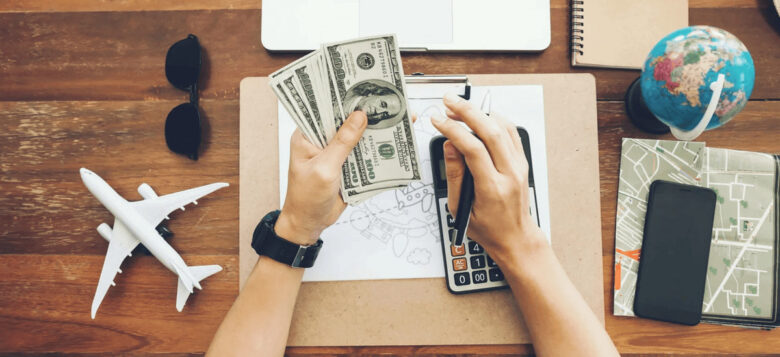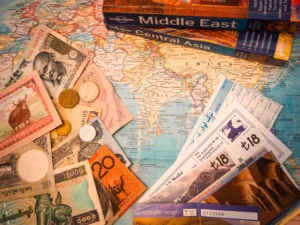Traveling is one of the best ways to see new places, get to know other countries and make memories that will last a lifetime. But if you don’t plan your money properly, what should be a fun trip can quickly turn into a stressful ordeal. Creating a vacation budget is important for a number of reasons, including avoiding debt and ensuring you get the most out of your trip. This article discusses why it’s important to have a budget when planning a trip and how it can improve your overall experience.
1. Stay Away from Financial Pressure:
One of the most important reasons to plan a travel budget is to avoid money stress. When traveling, things like flights, restaurants, food, sports and souvenirs can add up quickly. If you don’t create a budget, you could end up overspending and getting into debt during or after your trip. These worries can make you unhappy or even anxious. Once you’ve created a budget, you’ll know exactly how much you can spend and can make smart choices about where and how you spend it. This plan can prevent you from overspending and ensure that you don’t go home with debt or unexpected expenses.
2. Make the Most of Your Trip:
A well-thought-out schedule can help you get the most out of your trip by allowing you to spend your money on the things that matter most to you. Whether you want to eat at a famous restaurant, do fun things in the area, or stay in a beautiful place, knowing your budget can help you decide how to spend your money. If you have a budget, you can figure out where you can spend more and where you can save money. For example, if you like food, you might spend more money trying local food than on accommodation. If comfort is more important, you can choose a better hotel and eat at local markets to save money on food. This planned allocation ensures your money is used to enhance your trip in a way that aligns with your values and interests.
3. Make Sure the Trip is Stress-Free:
Travel can be unpredictable, so creating a budget can help you prepare for unplanned expenses. Emergencies such as health problems or flight delays can arise at any time and cause you to lose more than you planned. If you set aside some budget for troubleshooting, you can resolve them without ruining the rest of your trip. Creating a budget also helps you plan different parts of your trip. Knowing how much money you have allows you to research and book accommodation, transport and activities in advance, often getting you better deals and avoiding last-minute stress.
4. Encourage Good Money Habits:
Overall, creating a travel budget and sticking to it is a great way to be more financially responsible. It makes you more aware of how you spend your money and helps you make smart money decisions. This discipline not only helps you when traveling, but also when budgeting for daily expenses and making plans for the future. By creating a travel budget every day, you can develop the habit of setting and achieving financial goals. This habit can help you manage money better in other areas of your life, leading to long-term financial security and peace of mind.
5. Make Informed Decisions:
Creating a budget can help you make smart travel decisions. This allows you to compare different options and choose the one that offers the best value for money. For example, if you’re looking for accommodation, you can compare price, location and features to find the best deal. Likewise, you can compare prices for different activities and choose the one that offers the best value for money. Transportation decisions can also be based on information. A budget allows you to compare the costs of different modes of travel and see how convenient they are, such as flying, taking the train or car. Knowing how your choices affect your money can help you plan a trip that meets your needs without breaking your budget.
6. Make Future Travel Plans:
Creating a budget for your current trip can also help you plan future trips. Tracking your expenses and sticking to your budget can help you save money for future trips. Because you plan your money in advance, you can travel more and see more places without worrying about your finances. You can also use the spending tips you learn during a trip to plan future trips. As you travel more, you’ll get better at pricing items, finding deals, and keeping track of your money. This experience makes planning future trips easier and faster.
Conclusion:
For a stress-free, fun and well-planned trip, consider your travel budget. It takes away the worries about money, makes your trip more enjoyable and helps you make informed decisions. Creating a budget can help you manage your money more responsibly, increase your creativity and intelligence, and support eco-friendly travel. It can also help you plan future trips and ensure your current trip is appropriately memorable. Creating a travel budget and sticking to it can help you get the most out of your trip while staying financially healthy. Before you take your next trip, consider your budget and use it to determine how you plan and spend your money. This will enhance your trip and allow you to make memories that will last a lifetime, without having to worry about money.
FAQs:
1. How can vacation budgeting improve my trip?
A travel budget makes your trip better by allowing you to spend your money on the things and activities that matter most to you. By planning your expenses, you can avoid overspending while still enjoying your trip. It can also help you stick to a budget so you don’t take home extra debt.
2. What should be included in a travel budget?
A travel budget should include all possible expenses such as round-trip travel, accommodation, food, activities, souvenirs and emergency funds. Also take into account the costs you will incur before you travel, such as getting travel insurance, visas and any equipment you need. By planning for these expenses, you can ensure that you are prepared for every part of your trip.
3. How do you plan a trip without going over budget?
Use a budgeting app or travel journal to track your expenses while you’re away so you don’t go over your budget. Plan and book major purchases, such as flights and accommodation, in advance to get better deals. Observe how much you spend each day, look for free or cheap things to do, and decide what matters most to you before you spend any money.
4. Do you have any cheap travel tips you can give me?
When traveling on a budget, you need to find ways to save money without giving up the fun. You can stay in cheaper places like hotels or vacation rentals, eat at local markets instead of fancy restaurants, and take the bus or train instead of driving. Find something that doesn’t cost a lot of money or require you to do anything at all, and plan your trip for a less busy time.
5. Can preparing a travel budget help you plan your long-term finances?
Yes, creating a travel budget can help you develop good money habits that will help you plan your finances in the long term. It helps you set money goals, manage your money well, and make smart choices about how you spend your money. These skills can help you save for travel and other long-term financial goals, as well as contribute to your overall financial health.




